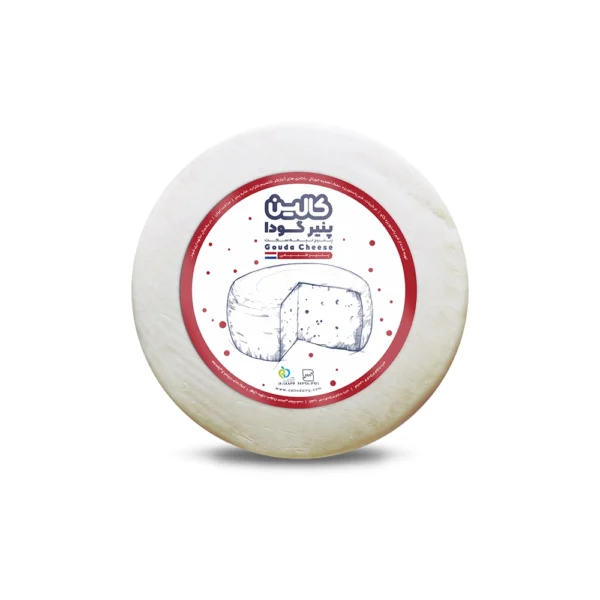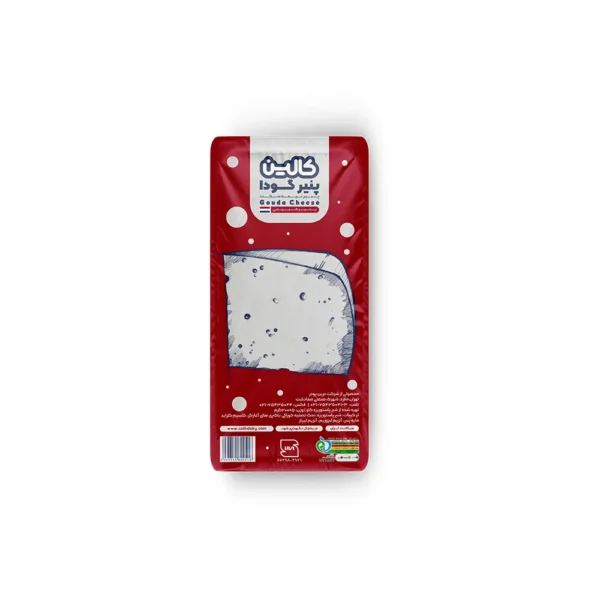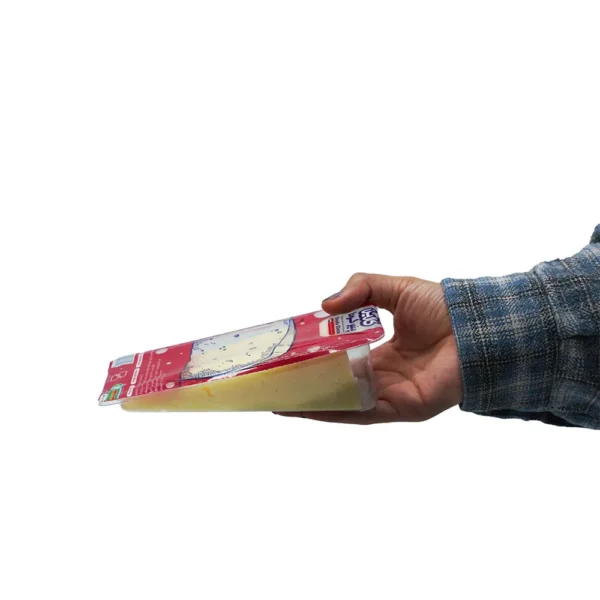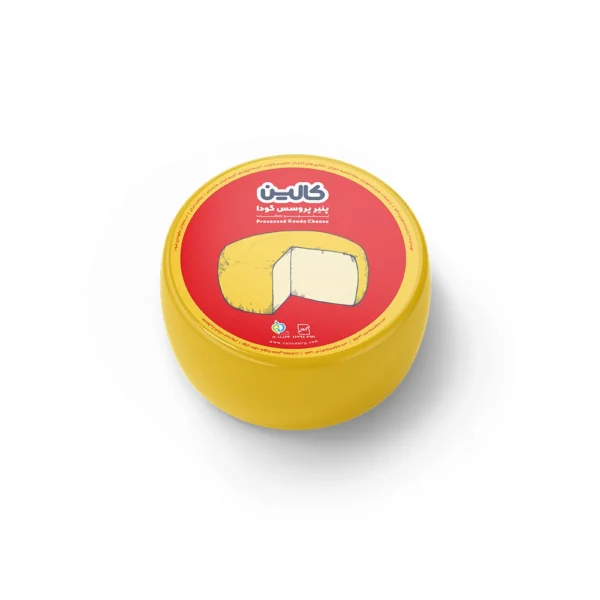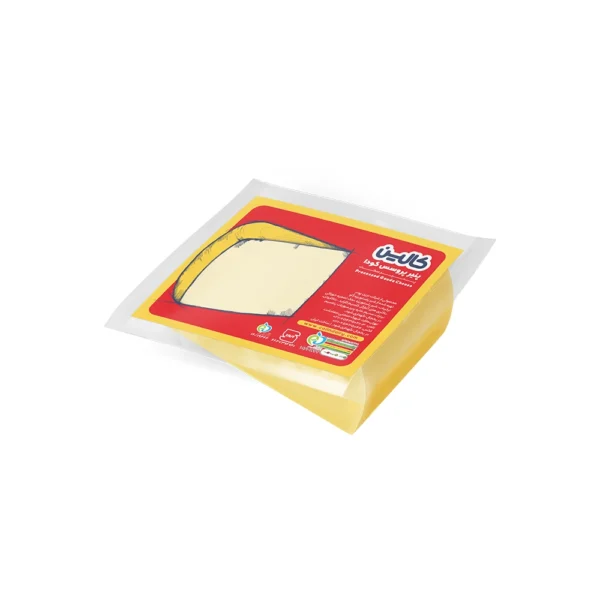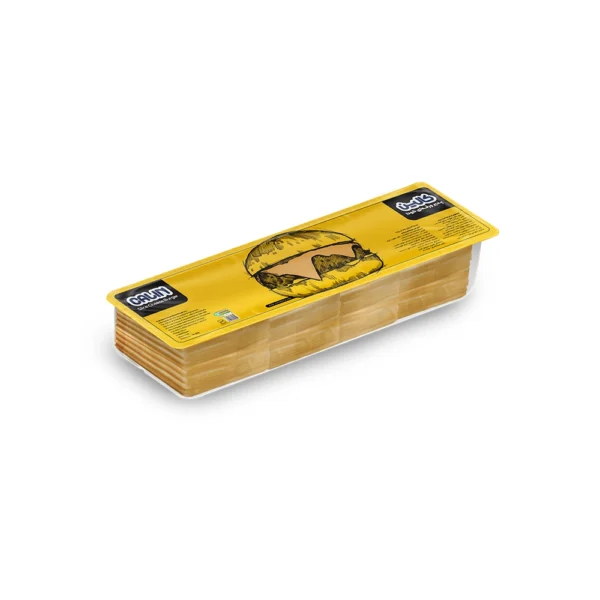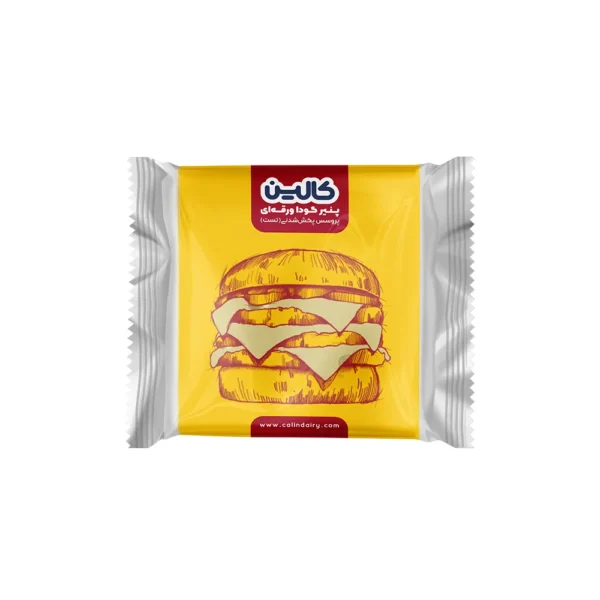Processed Gouda Cheese, 10kg
Gouda cheese is a timeless classic that has captured the hearts and taste buds of cheese lovers around the world. Originating from the Netherlands, this versatile cheese has become a household staple, known for its rich flavor, smooth texture, and variety of aging options. Whether young and creamy or aged and nutty, Gouda offers something for every palate. Its mild sweetness when young transforms into bold, caramelized flavors with age, making it a favorite for everything from casual sandwiches to gourmet cheese platters. With a history spanning over 900 years, Gouda continues to be celebrated for its unique taste and cultural significance, making it a must-have for anyone who appreciates the artistry of fine cheese.
What is Gouda Cheese?
Gouda cheese has a storied history that dates back over 900 years. Originating from the southern Netherlands, the cheese is named after the city of Gouda, where it was first produced. As one of the oldest cheeses still made today, Gouda has stood the test of time, remaining a popular choice across the globe. Gouda is typically made from cow’s milk, though variations exist using goat or sheep’s milk. It is characterized by a smooth texture and a light ivory to golden color, with its taste and consistency changing as it ages.
Characteristics of Gouda Cheese:
• Color: The color of Gouda varies, typically ranging from light yellow in younger versions to golden hues in aged varieties.
• Texture: Young Gouda has a soft, creamy texture, while aged Gouda becomes firmer and may even develop a crumbly texture depending on the length of aging.
• Flavor: Younger Gouda tends to be mild and slightly sweet, with a creamy finish. In contrast, aged Gouda presents a bold, nutty flavor, often accompanied by caramel-like notes.
Historical Significance of Gouda
Gouda cheese is among the oldest cheeses still in production today. Its origins trace back to the 1100s when Dutch farmers began making cheese from fresh cow’s milk. Thanks to its long shelf life, Gouda quickly became a staple in many homes and regions. Over the centuries, it has continued to be a key part of Dutch food culture. In fact, Gouda remains synonymous with the city that bears its name, and the famous Gouda cheese market still takes place in the city, attracting both locals and tourists alike.
Best Gouda Cheese
Gouda cheese is one of the most beloved cheeses in the world, celebrated for its rich and diverse flavor profile. Hailing from the Netherlands, Gouda is made from cow’s milk and is known for its smooth texture and mild, nutty flavor. What sets the best Gouda apart is the process by which it is aged, influencing both its texture and taste. The best young Gouda has a creamy, soft consistency with a delicate sweetness, making it perfect for a range of dishes. In contrast, aged Gouda, which can be matured for months or even years, develops a firmer texture and more pronounced flavors, including rich, caramelized, and nutty undertones that captivate cheese enthusiasts. The aging process truly makes the difference, enhancing its complexity and character.
Why Choose the Best Gouda Cheese?
When it comes to choosing the best Gouda cheese, it’s about more than just the flavor – it’s about the experience. High-quality Gouda provides a richer taste and smoother texture, elevating everything from cheese platters to everyday meals. Whether you’re preparing a sophisticated dish or enjoying a casual snack, selecting top-tier Gouda ensures a superior culinary experience. Its versatility allows it to be enjoyed in various forms – from a simple addition to sandwiches and salads to being melted in recipes like sauces, casseroles, and even on burgers.
Types of Gouda Cheese
There are several distinct varieties of Gouda cheese, each offering its own unique characteristics. These options cater to different tastes and culinary needs, making it easy to find the perfect Gouda for any occasion.
1. Young Gouda: Aged for just 1 to 6 months, this variety is smooth, soft, and mild with a creamy texture. It’s an excellent choice for those who enjoy a sweeter, gentler flavor.
2. Aged Gouda: Aged between 6 and 18 months, this version has a firmer texture and more complex flavor profile. The taste becomes more intense, with nutty and caramelized undertones.
3. Smoked Gouda: This Gouda is infused with a smoky flavor, making it a favorite addition to charcuterie boards, grilled sandwiches, and as a snack on its own.
4. Flavored Gouda: Some Gouda varieties are enhanced with herbs, spices, or even truffles, creating a unique twist on the traditional flavor. These options can be perfect for a gourmet cheese platter or a special recipe.
5. Processed Gouda: Known for its smooth melting qualities, processed Gouda is ideal for cooking, such as in sauces, fondue, or atop a hot dish like a burger.
Choosing the Right Type
Selecting the right Gouda cheese often depends on the occasion or recipe. For a casual snack or sandwich, young Gouda is a perfect choice. On the other hand, aged Gouda works beautifully when paired with wine or enjoyed on its own as a delicacy. Smoked Gouda adds a delicious twist to snacks, while flavored varieties can elevate your cooking experience.
Gouda Cheese Price
The price of Gouda cheese can vary depending on several factors, including aging time, the cheese’s origin, and whether it is artisanal or mass-produced. Each factor plays a role in determining the overall cost of the cheese, especially when it comes to specialty varieties.
Factors Affecting Price:
• Aging: The aging process directly influences the cost. Aged Gouda, which requires a longer maturation period, generally comes at a higher price due to the additional time and care it takes to create it.
• Origin: Authentic Dutch Gouda, particularly from the region around the city of Gouda, tends to be more expensive compared to Gouda produced elsewhere. This is due to the traditional methods and the reputation of the cheese’s origin.
• Type: Specialty Gouda cheeses, such as those flavored with truffles or smoked varieties, often come with a premium price tag because of their unique characteristics.
Where to Buy Gouda Cheese?
Gouda cheese is widely available in grocery stores, specialty cheese shops, and online markets. When purchasing, it’s important to select trusted brands known for their high quality. Make sure to check the labeling for authenticity, particularly if you are seeking a true Dutch Gouda, as this ensures you’re getting a product that adheres to the traditional methods of production.
Frequently Asked Question
1. Does Gouda cheese melt? Yes, Gouda cheese melts beautifully, making it an ideal choice for melting on burgers, in sandwiches, or for use in sauces and fondue. Its smooth texture when melted adds a rich, creamy quality to various dishes.
2. Does Gouda cheese make you gain weight? Like most cheeses, Gouda is calorie-dense due to its fat content. While eating it in moderation can be part of a healthy diet, consuming large quantities without balancing other nutritional needs may contribute to weight gain. It’s important to enjoy Gouda cheese in moderation as part of a balanced diet.
3. What are the benefits of Gouda cheese? Gouda cheese is a good source of essential nutrients such as calcium, protein, and vitamins A and B12. It also contains healthy fats, which contribute to a well-balanced diet when consumed in moderation. Additionally, aged Gouda is rich in probiotics, which can aid digestion and support gut health.
4. What is the difference between Gouda and Cheddar cheese? Gouda and Cheddar are both popular cheeses, but they differ in taste, texture, and aging process. Gouda has a mild, slightly sweet flavor when young and a nutty, caramelized taste when aged, while Cheddar is sharper and more tangy. Additionally, Gouda tends to be creamier and smoother compared to Cheddar, which can be more crumbly and firm.
5. Does Gouda cheese have more fat than Cheddar? Gouda cheese typically has a slightly lower fat content compared to Cheddar, but this can vary depending on the specific type of Gouda or Cheddar you choose. Both cheeses are rich in fat, but Gouda’s fat content is often more balanced by its creamy texture, making it slightly less dense in fat compared to Cheddar, especially in younger varieties.











